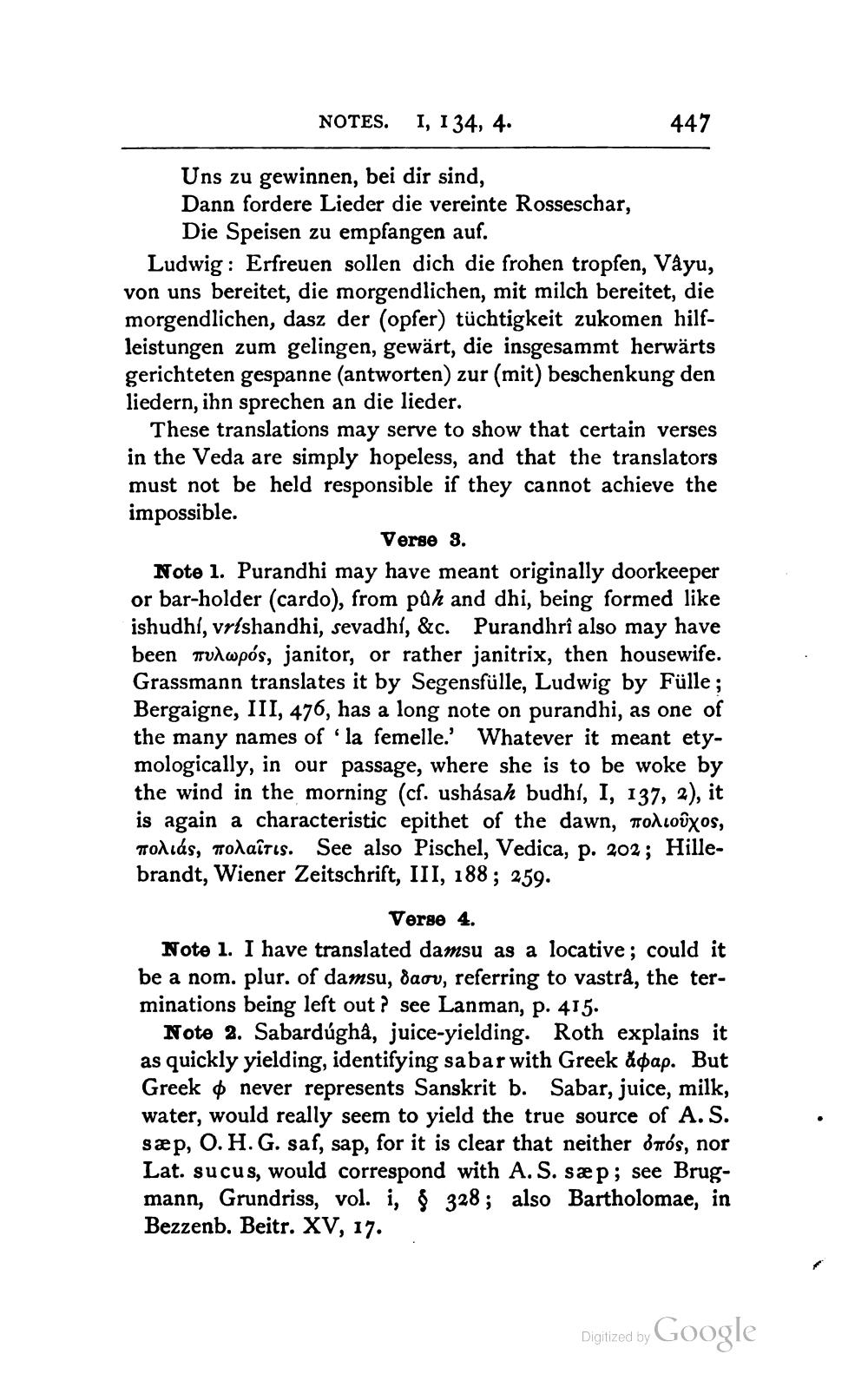________________
NOTES. I, 134, 4.
447
Uns zu gewinnen, bei dir sind, Dann fordere Lieder die vereinte Rosseschar,
Die Speisen zu empfangen auf. Ludwig: Erfreuen sollen dich die frohen tropfen, Vàyu, von uns bereitet, die morgendlichen, mit milch bereitet, die morgendlichen, dasz der (opfer) tüchtigkeit zukomen hilfleistungen zum gelingen, gewärt, die insgesammt herwärts gerichteten gespanne (antworten) zur (mit) beschenkung den liedern, ihn sprechen an die lieder.
These translations may serve to show that certain verses in the Veda are simply hopeless, and that the translators must not be held responsible if they cannot achieve the impossible.
Verse 3. Note 1. Purandhi may have meant originally doorkeeper or bar-holder (cardo), from poh and dhi, being formed like ishudhí, vrlshandhi, sevadhi, &c. Purandhrî also may have been tuiwpós, janitor, or rather janitrix, then housewife. Grassmann translates it by Segensfülle, Ludwig by Fülle ; Bergaigne, III, 476, has a long note on purandhi, as one of the many names of 'la femelle.' Whatever it meant etymologically, in our passage, where she is to be woke by the wind in the morning (cf. ushásah budhí, I, 137, 2), it is again a characteristic epithet of the dawn, Tocoûxos, holids, molaitis. See also Pischel, Vedica, p. 202; Hillebrandt, Wiener Zeitschrift, III, 188; 259.
Verse 4. Note 1. I have translated damsu as a locative; could it be a nom. plur. of damsu, daov, referring to vastra, the terminations being left out? see Lanman, p. 415.
Note 2. Sabardúgha, juice-yielding. Roth explains it as quickly yielding, identifying sabar with Greek a$ap. But Greek • never represents Sanskrit b. Sabar, juice, milk, water, would really seem to yield the true source of A. S. sæp, O.H.G. saf, sap, for it is clear that neither otós, nor Lat. sucus, would correspond with A. S. sæp; see Brugmann, Grundriss, vol. i, § 328; also Bartholomae, in Bezzenb. Beitr. XV, 17.
Digitized by
Digized by Google




